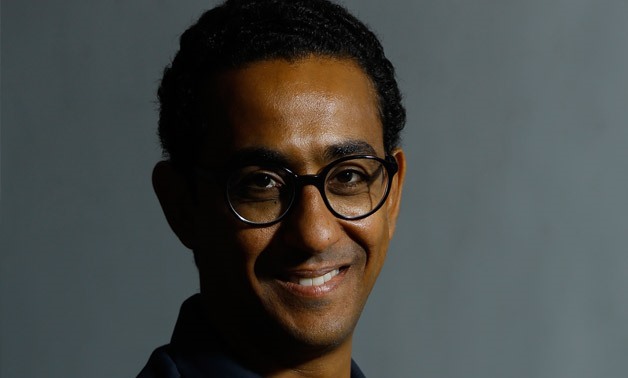
File - Marwan Hamed.
CAIRO – 15 June 2020: Arabian Cinema Centre organised an interview performed by cinema critic Deborah Young with famed Egyptian director Marwan Hamed. In this interview, Hamed revealed a lot of details about his technique as a director, his previous movies and his upcoming movie "Kira & El-Gin".
1-How do you choose your scripts?
Hamed: I like literary adaptations; the very first short film that I worked on while studying and my first feature film, The Yacoubian Building, were adaptations. If I find a good book with a well-written story and interesting characters that catch my attention, I will definitely work on that.
2- What about the cast?
Hamed: I like to cast actors/actresses in new, unexpected roles. I was lucky to work with many icons, especially in the beginning of my career, such as Adel Emam, Yousra, Nour el-Sherif, Khaled el-Sawi, Hind Sabri, Maged el-Kedwany, Karim Abdel Aziz and Menna Shalaby.
"The Originals"
"The Originals" is written by Ahmed Mourad and is about a fictional world. The whole idea of the film is based on some intriguing questions; Is there someone watching us? Who can reveal our secrets, phones, passwords, cameras?
"Diamond Dust"
What excited me the most about "Diamond Dust" was the father-son story. Taha, the son, discovers a whole new shocking side of his father; the thing that angers him in a way he didn’t expect and brings out his own dark side, changing his life forever.
"The Blue Elephant"
Being friends with Ahmed Mourad gave me the chance to read "The Blue Elephant" even before it got published. Since that time, I had the intention of turning the book into a film. What caught my attention the most was Yehia Rashid's character.
Usually, working on these films is a lot of fun, where we work on creating an imaginary world to turn a dream into a reality. However, the challenge with these films is the low budget that puts us in a tight schedule and a lot of work.
In part one, Khaled el-Sawi did an amazing job as the villain, which made it even more challenging for Hend Sabry to fill in his shoes in the second part, "The Blue Elephant: Dark Whispers".
However, she handled the character perfectly and in a very professional way by doing a lot of preparations for the role, especially with Karim Abdel Aziz who appears with her in the same room most of the film.
As for Nelly Karim’s role, in the first film, she played the supporting role of the romantic interest of the lead role. But, in the second one, she turned into an obstacle that the protagonist needs to overcome.
DOP Ahmad al-Morsy
Morsy is a friend of mine. I worked and trained with him in our first film together, "The Blue Elephant".
Morsy and I have a lot in common; we both like to do a lot of preparation before we start shooting. We understand that every film needs a special kind of preparation; however, we set a lot of plans to get the best results.
Morsy is capable of finding smart and quick solutions for every situation. For example, he once shot a scene in "The Blue Elephant" using the flashlight of an iPhone device. We like to explore and experiment as we work together.
"Ibrahim Labyad"
"Ibrahim Labyad" needed a rough wilderness area for shooting, so we found a spot near El- Mukkatam, where we shot 10 percent of the film and the rest was shot in a studio we built later on.
What is your advice for Upcoming Directors Boost Their Filmmaking Career?
Hamed: The more I work, the more I realize that it is not easy to capture the audience’s attention. However, there are many opportunities now that weren’t available when I started my career. For example, the films’ libraries and resources can now be found easily on the internet. Moreover, nowadays you can shoot a whole film using a cell phone; there are many ways to educate oneself.
Tell us more about your upcoming movie "Kira & El Gin"
The movie is based on Ahmed Mourad’s novel 1919. We only shot for one week.
The film takes us 100 years back in Egypt as we follow the resistance against the English occupation. The film is 80 percent in Arabic and 20 percent in English. It is not only about the resistance, we also have a look at the society and its people at that time. The film focuses on historical figures that might have been forgotten. We will resume shooting in July.

Comments
Leave a Comment